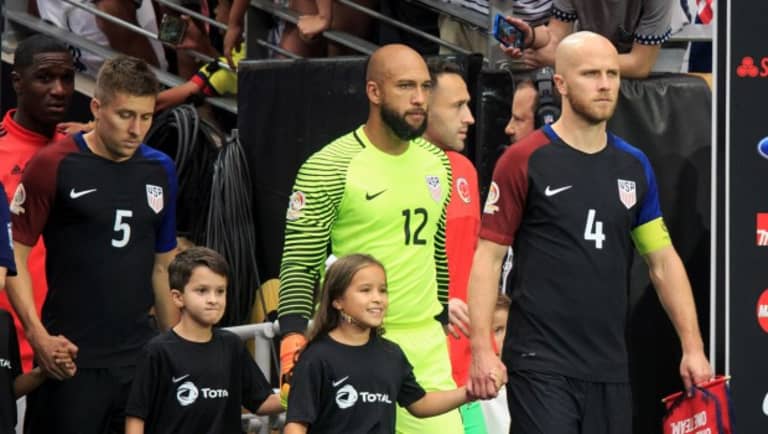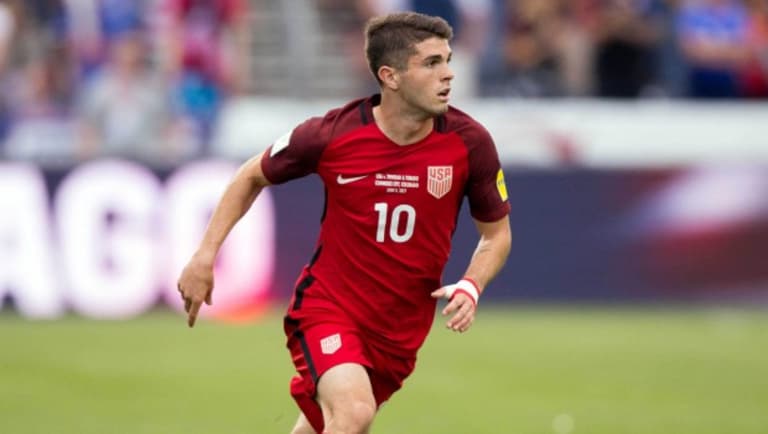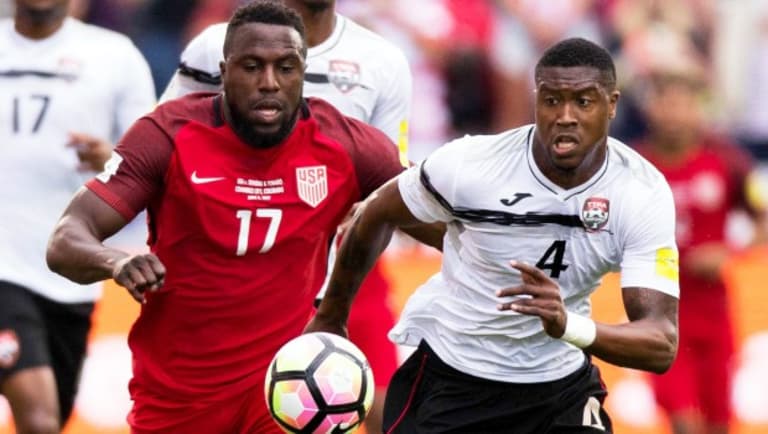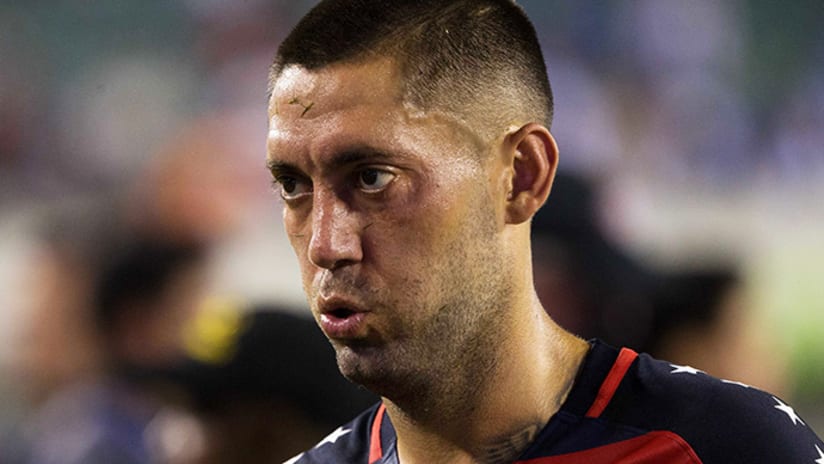There’s a strange thing that happens when you sign on the dotted line to become a professional player. It’s the best moment of your life. It’s tens of thousands of hours of pain and work justified. It’s the chance to make a paycheck from the same thing you did on the playground.
But you also assume a weight.
The game no longer is yours. You sign to make a dream come true, but you also sign something away. You might be living out a dream, but there are strings attached. There’s a responsibility you assume when you sign on that dotted line, and it’s your choice whether you accept it, reject it, or ignore it.
When the players for the US men’s national team take the field on Friday against Panama (7 ET; ESPN2, Univision, UDN), they will shoulder more responsibility than most American players face in a career. There’s more on the line than any person could reasonably appreciate.

Soccer's place in US sports
In the most basic terms, there’s a ton of short-term money on the line.
Soccer has made it in America, but in “making” it, you enter the marketplace. Soccer now competes with baseball, basketball, hockey, and even American football. Humans only have so much time in the day, and they can only give attention to so many things. Where people focus their attention is where the world focuses its money.
The World Cup is the biggest opportunity to draw eyeballs to soccer. The more new fans see American players or MLS-based stars on the screen, the more likely they are to turn on the TV to soccer again or go to their local stadium to watch a game.
As someone who makes some money talking about the sport, the consequence of Friday's World Cup Qualifier has not been lost on me. If the US somehow fail to qualify for the World Cup, there will be less money in the industry than if they win; as a result, there are likely to be fewer jobs.
When they were kicking against their parents' garage door, most players never imagine they would ever have other people’s paychecks riding on their every touch of the ball.
With a more long-term perspective, success tends to have compounding rewards. If the US puts in a good showing at a World Cup, more sponsors will want to get involved in the sport; more kids will want to get involved in their local leagues; more fans will continue to follow the game. It all adds onto itself. Today’s success makes tomorrow’s accomplishments easier.
There’s a counter-argument that some will make, suggesting the US system needs to get blown up. Some will say we need a wake-up call after both our men’s and women’s teams have stagnated.
Maybe it’s true, but it’s an awfully risky concept.
Pioneers have put in decades of work and it feels like we are nearing a tipping point. Crowds in MLS stadiums across the country have made the experience about more than match. If we’ve learned anything about the world recently, it’s that people like being involved in things that are cool. There’s a viral element to society. Once a trend reaches a certain point, it takes off. I shiver to think what happens if we lose that momentum. We end up like MySpace, I suppose.

Do it for the people
On a more aspirational level, countless little kids will be watching the World Cup. If the US makes the tournament, a young player will watch Michael Bradley and want to be as composed as him; some little kid will watch Christian Pulisic and want to be as a electric as him; some little kid will see Clint Dempsey and want to be as daring as him.
It will push some kid somewhere – if not hundreds or thousands – to work a little harder. They will look at the TV screen and have the moment every parent or teacher has ever wanted for their kid. I know this, because I was once that kid, watching John O’Brien against Portugal from an airport restaurant in 2002, begging my mom to give me five more minutes with the man I would go on to spent countless hours mimicking in my backyard.
It’s not to say kids won’t get enamored with Cristiano Ronaldo, but it always adds a little incentive when the guy on TV could be from down the street. At the end of the day, I’m not sure what we have sports for if not to inspire a little kid to be better.
On top of everything else, there’s a lot of utility to be made or missed. For US World Cup matches, people gather in droves. Living rooms become packed; bars get filled to the last nook. People call their mothers and sisters and uncles to ask what they are doing for the game, if they’ve heard the latest news, how they suspect the match will shape up.
Millions of Americans spend four year cycles waiting for the next opportunity to watch the US in a World Cup. It’s the light at the end of the tunnel of life that isn’t always pretty.
Perhaps, more than anything, the US team has the rare opportunity to make sports about more than a game. It can bring people together.
In the polarized country we currently live in, national sports unite us. People from every walk of life will put on red, white, and blue and laugh and cry together. I’m not suggesting we don’t have a reason to be divided right now, but amidst every divide we need a common ground to come back for discussion.
The US men’s national team has an opportunity to create a lasting impact on the country and, consequently, the world. If it presents even the slightest possibility, the slightest glimmer of hope to create dialogue, I can’t think of anything more important.

Now it's up to them
It’s all part of the paradox for a player. Nobody signs a professional contract and expects to have TV contracts or little kids’ futures or world politics on his shoulders. But it comes with the job.
To become the best player possible, you need a purpose that drives you. In the upcoming World Cup Qualifier, the players will undoubtedly have plenty of points of motivation. But at the same time, to achieve optimal performance, they have to put it all out of their minds. They need to think of nothing else but the next pass.
Is it right for us to put all of this on the players? There’s a part of me, as someone who spent nights staring at the ceiling for far less pressing matters after losses, that feels guilty. Let the players play the game they love and it’s up to us to deal with the response. At the same time, it comes with the privilege of playing the game. If you want the opportunity, you have to accept the responsibility.
I played with plenty of players who couldn't give two cabbages about the responsibility. I take a lot of solace going into Friday that we seem to have a team that gets it.
ExtraTime Radio Podcast

LISTEN: The guys preview the US national team's must-win game on Friday, then invite Panamanian journalist David Sakata (18:49) to re-live the national nightmare ushered in by San Zusi's goal in 2013. Stick around for MLS banter and the mailbag. Subscribe now and "Like" our Facebook page so you never miss a show! Download this episode!













